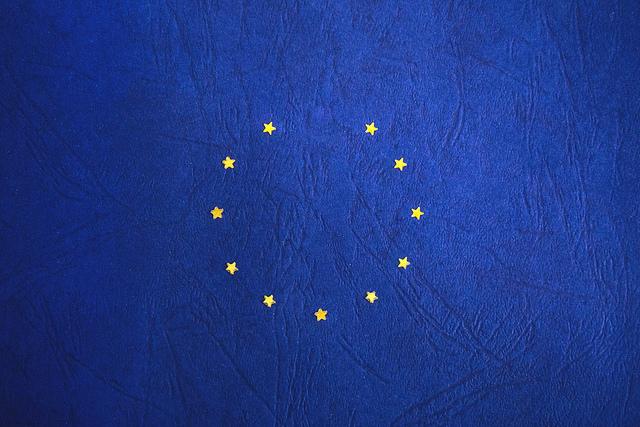
If this was victory, it certainly didn’t feel like one. The motley collection of ‘patriots’ who persuaded a narrow majority of the British electorate to vote for their country’s exit from the European Union have now gone to ground, proclaiming that it’s not their responsibility, but rather that of the British government to pick up the smouldering pieces of their national wreckage.
Meanwhile, both Britain’s ruling Conservatives and the opposition Labour parties are fumbling not only for new leaders, but also for any policy to reconnect with an electorate they no longer either control or understand. And in the rest of Europe, pointless grandstanding is the first response to Brexit: most European governments still prefer to pretend that the current crisis concerns only wayward Britain, and that the best response to the rejection of European Union integration should be more EU integration. ‘If it’s a Yes, we will say “on we go”, but if it’s a No we will say “we continue”’, as EU Commission President Jean-Claude Juncker once memorably explained his way of dealing with referendums in Europe.
But the reality is both more mundane and more tragic. Britain’s decision to leave the European Union is the biggest political blow to the European project of forging greater unity since World War Two. It’s also a leap into a legal dark hole, a journey through an uncharted period in European history. The way the ‘divorce’ deal between Britain and the EU is conducted will shape Europe’s character for a long time. And one wrong move by either side in the arduous negotiations which lie ahead could well doom an entire European continent to decades of mayhem.
Notwithstanding the official denials from London, the fact remains that Britain will be too preoccupied with licking its own internal wounds to be a significant actor on the world stage until at least 2020. Any government formed after Prime Minister David Cameron’s departure sometime in September or October this year will be preoccupied not only with handling the separation negotiations with the EU, but also with holding the country together by keeping the Scottish and Irish nationalists at bay.
A new general election may well be called before the end of this year. Yet even if no early ballots take place, both of the country’s main political parties will concentrate their efforts on trying to prevent populist movements such as the UK Independence Party from becoming a permanent feature of British political life, a domestic preoccupation which will be all-absorbing.
Of course, British diplomats will rediscover a sudden interest in the Commonwealth and the English-speaking world, and will emphasise Britain’s contribution to the United Nations. But at least for the next few years, this will be more of a cosmetic exercise designed to show that Britain is not bereft of international options, rather than a serious new foreign policy engagement. Finance Minister George Osborne, the architect of Britain’s ‘pivot’ to China, will soon be out of a job. But Britain’s solicitous—if not downright servile—attitude towards the Chinese will continue, if only in order to minimise the damage which Brexit will inflict on inward investment and on the position of the City of London as Europe’s top financial destination.
The snag is, however, that Britain’s weakness is also Europe’s weakness—a fact that most European leaders privately accept, but publicly refuse to acknowledge. That’s not necessarily because Britain’s decision to leave the Union is likely to be followed by copycat demands for similar referendums elsewhere in the EU, for that danger is much-exaggerated.
Still, the British example will encourage a rejectionist trend: the temptation of member states to hold ‘mini-referendums’ not about their continued membership in the EU, but about key EU obligations they no longer wish to respect. That’s what has already happened in the Netherlands, where the electorate recently rejected a trade deal between the EU and Ukraine, and that’s what’s likely to happen in Hungary later this year, when a referendum on immigration is held. The British have succeeded in killing a fundamental tenant of the EU: the ability of politicians to decide on new integration initiatives without having to refer every issue to the electorate. And that will act as a permanent damper on what the EU will be able to achieve in the future.
Ways around those difficulties do exist. The British negotiating strategy with Europe would be to keep talking for as long as possible, in the hope that, as time goes by, the Europeans would either relent and offer better conditions, or that the mood of the British electorate would change, and the UK could aim for a closer relationship with Europe. The European negotiating stance is precisely the opposite: to push for a quick resolution of the British drama, and to make sure that the British pay a heavy price for their ‘defection’.
But punishing Britain, as tempting as it may be, will be a fools’ errand. According to existing treaties, Britain can refuse to sign any deal it considers unfavourable, at least for the next two years allotted to the negotiations. So, being vengeful on the British will only increase the turmoil in Europe and may also unleash unintended consequences, such as a new rivalry between the European Union and NATO, the institution in which Britain will remain a major player, and whose importance it’s now likely to champion even more. Far better, therefore, is to conduct the divorce negotiations without drama and bitter emotions, and to allow Britain to slide out as quietly as possible, in the hope that it may actually slide back into Europe at a non-too-distant future. Anything else will hurt Europe as much as it will hurt the British.
Are the Europeans capable of such magnanimity and self-restraint? Perhaps, although all that will require European leaders who are fiendishly clever, heroically patient and amazingly visionary. And none of those qualities are in great supply in Europe at the moment.